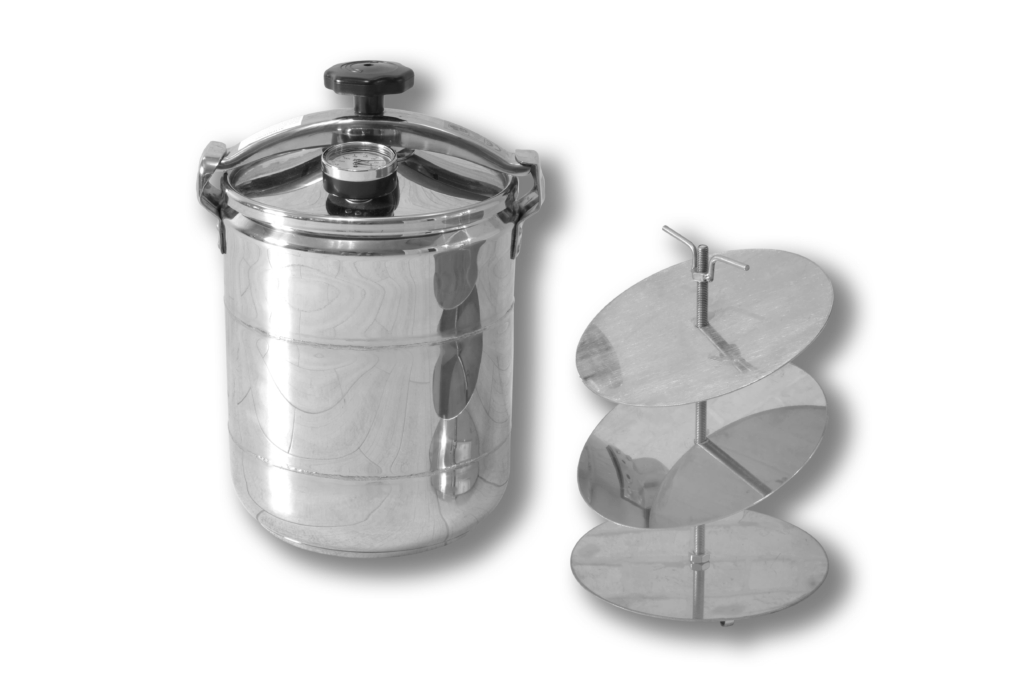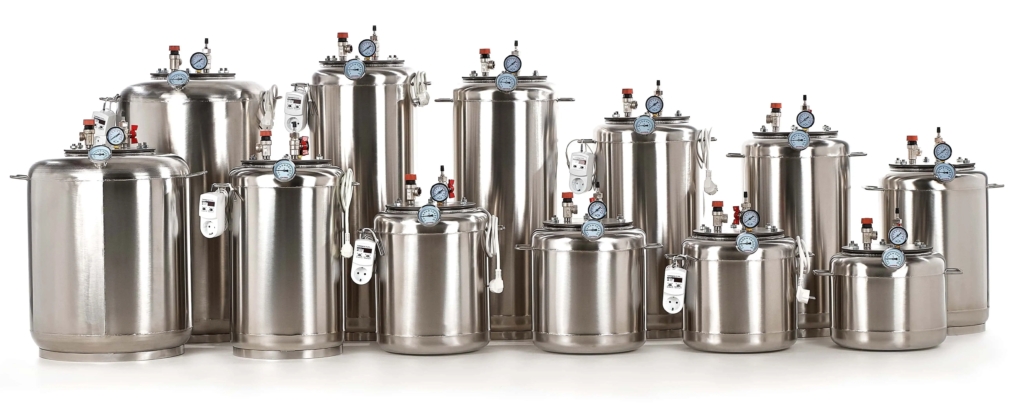How to choose an autoclave
An autoclave is a great helper in any household. With Autoclave, making preserves is quick, easy and the result is always high quality.
What is an autoclave? An autoclave is a device that, when hermetically sealed, heats the containers under pressure to a high temperature – up to 120 degrees Celsius.
For sterilisation of most foods, 90 degrees is sufficient, but for long-term preservation of meat and fish, for example, temperatures above 100 degrees are needed, and autoclaves are not the answer.
In the following article, we’ll explain some important autoclave parameters to help you make your choice.
Which material should I choose for my car glass?
Here, our view is clear – choose the autoclave material that requires the least maintenance, lasts the longest and looks beautiful despite its age. Stainless steel autoclaves can last up to 50 years and are also lighter than their black metal counterparts.
Cassette or pressure vessel?
Cassette – autoclaves work on the following principle: special cassettes are fitted with reservoirs and the cassette is pressed together. The cassette pressure holds the lids firmly in place during the heating process, so that they are always securely fastened. When using cassettes, the cans must be of the same volume (or, more precisely, the same height).
Pre-pressurised autoclaves are pressurised with a special pump before heating starts. The pre-applied pressure holds the lids tightly and prevents the vessels from bubbling to the surface. This is particularly important for lids fitted with a lidder.
How big should you choose?
When choosing a car glass, assess your needs first and foremost. The optimum capacity of all our autoclaves is indicated in half-litre cans. In both our smallest and largest autoclaves you can make up to one can at a time. So judge the size that is right for you, based on how many jars you usually make at a time. Also, whether the autoclave of the size you choose will fit into a storage space when not in use.



